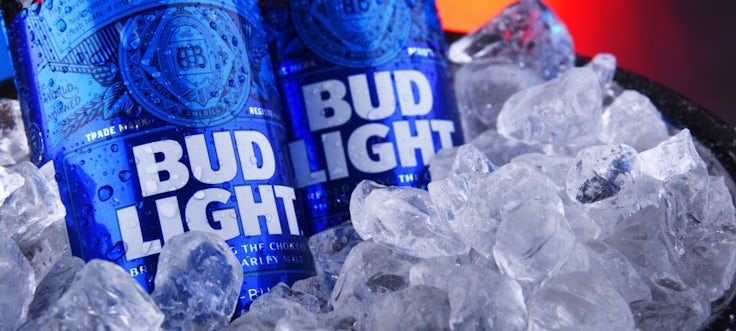AB InBev to ‘disproportionately’ allocate marketing spend behind ‘megabrands’
AB InBev posted higher revenues but lower volumes in Q1 2024, as the Bud Light backlash continues to constrain growth.
 AB InBev is “disproportionately” allocating marketing investment behind its megabrands, as the business continues to rebalance its portfolio in the wake of the Bud Light scandal.
AB InBev is “disproportionately” allocating marketing investment behind its megabrands, as the business continues to rebalance its portfolio in the wake of the Bud Light scandal.
The company, which owns Budweiser, Stella Artois and Corona among others, reported 2.6% growth in revenue during the first quarter of 2024, compared to the previous quarter, driven mainly by higher pricing.
Volumes were down by 0.6% in the quarter, with own beer volumes down by 1.3% and non-beer volumes up by 3.5%. This performance is predominantly due to the company’s continued struggles in the US, where revenues fell 9.1% for the quarter as a boycott against one of AB InBev’s key brands – Bud Light – continues to hurt the bottom line.
Bud Light has seen declining volumes in the US for over a year now, after a brief social media partnership with transgender influencer Dylan Mulvaney in April 2023 prompted a boycott by some conservative consumers.
AB InBev: Bud Light performance ‘constrained’ growth in 2023According to CEO Michel Doukeris, the company is looking to find growth by focusing on its other brands. Speaking to investors today (8 May), Doukeris spoke of AB InBev’s “megabrands”, which he defines as the top brands in each market that make up the majority of volumes and are “expected” to drive the majority of its growth going forward.
“We are disproportionately allocating sales and marketing investment behind these brands to accelerate brand power, build deep consumer connections and drive, efficient profitable growth,” he said.
These megabrands are “driving” growth, Doukeris explained, with a 6.7% increase in combined revenues led by Corona, which grew by 15.5% outside its home market of Mexico.
While refusing to be drawn on whether marketing spend has grown, fallen or increased in line with revenues, Doukeris claimed there would be “strong activation opportunities” throughout the year, which could make a “big difference” for the category. The AB InBev CEO said the company’s brands will have the “right investment” in order to capitalise on these opportunities.
“This investment is, of course, becoming ever more efficient, because as we have the right portfolio, the right brands to invest behind, these brands have scale and we can seize better performance from this investment,” Doukeris added.
“We will be investing more, then, but in a more efficient way for growth while we continue to be extremely disciplined.”





